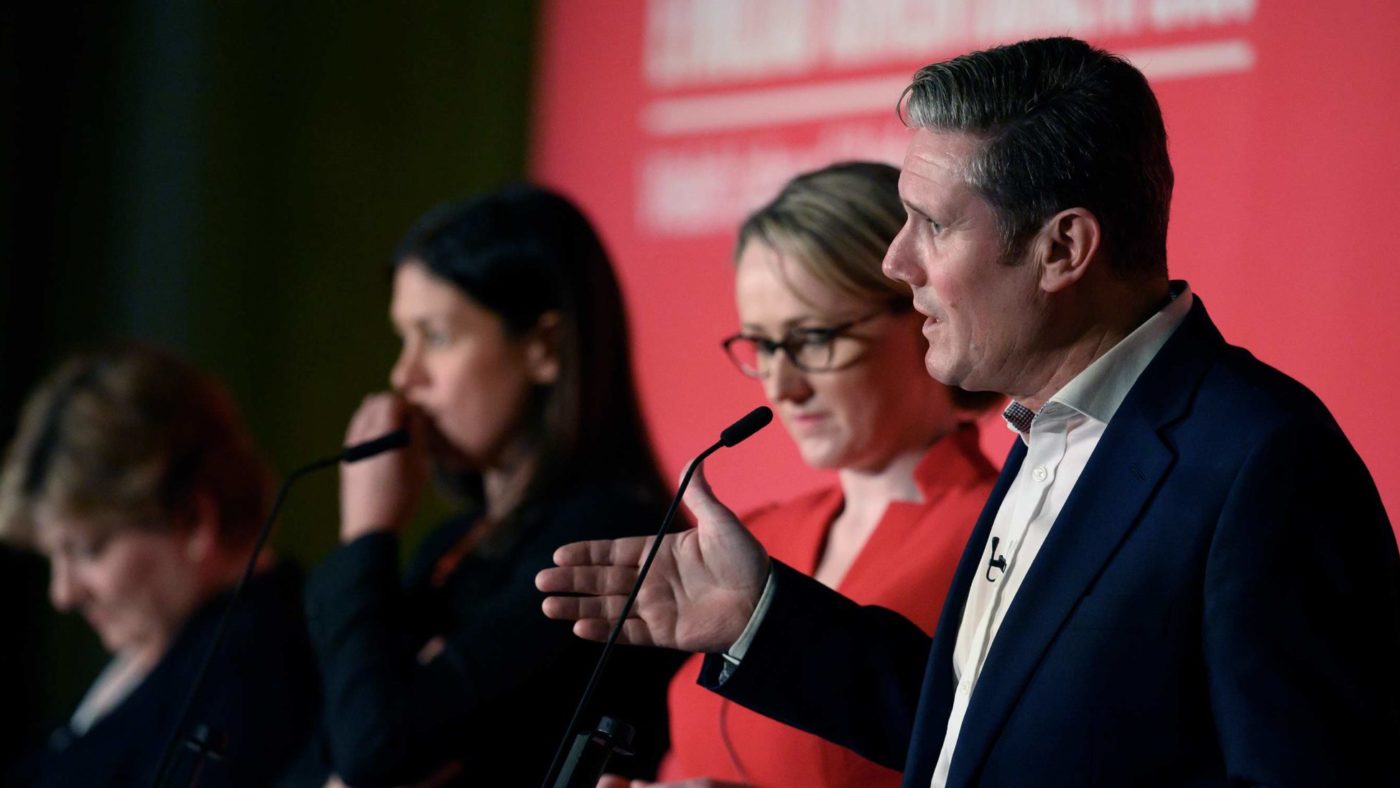Public ownership is back on the Labour Party agenda and has been since the election of Jeremy Corbyn as leader back in 2015. Corbyn is still Labour leader of course – he will officially step down once his successor is elected on 4 April – but his potential heirs are fighting to demonstrate their fealty to the Corbyn agenda.
Given they are pitching to a selectorate which – minus the very recent joiners – twice elected Corbyn to be party leader, this is inevitable.
However, it also means whoever becomes leader will require an about-turn to align their policies more closely with where the wider public are. As Labour discovered during December’s General Election, policies which provoke a roar at a Momentum rally do not always draw the same response from the people who actually decide elections.
One Corbynista sacred cow which does have a decent level of public support is nationalisation. According to recent polling by YouGov, the public favours state ownership of the railways, Royal Mail, water as well as the energy companies. Labour took a hammering at the recent election in spite of their support for nationalisation, not because of it.
But parallel to this, the party has been engaged in a series of what leadership contender Lisa Nandy has called “simplistic” attacks on the private sector. “I think this binary debate where we don’t recognise that there is a role to bringing the private sector in order to enlist their help in raising standards is a real problem,” Nandy told leadership hustings in Cardiff on Sunday.
This followed straight ‘no’ answers from the other leadership contenders when asked whether privatisation had brought any benefits at all.
That lack of nuance has been a hallmark of the Corbyn era. In seeking to replicate the (albeit moderate) success of populist parties such as Podemos in Spain, Corbynism has drawn arbitrary divisions between “the people” and “profiteers”. Instead of abandoning the territory of ‘in’ and ‘out’ groups to right-wing populism, Corbynism introduced its own binaries such as ‘The people’ versus ‘The establishment’, ‘the 99%’ versus ‘the 1%’ and public (good) versus private (bad).
While there are persuasive arguments for the nationalisation of natural monopolies such as the railways, overall the record of privatisation is mixed. There are positive examples. As The Guardian reported back in 2013, “since the privatisation of the 10 state-owned regional water authorities in 1989, the number of customers at risk of low water pressure has fallen by 99%”.
There are other similar examples of the private sector doing a better job than state-run industries. It’s hard to imagine BT or British Airways being renationalised, nor car manufacturing, given the unfortunate history of British Leyland.
Of course, when they say ‘privatisation’ leftwingers often really mean outsourcing, a concept that has come under understandable scrutiny since the collapse of Carillion. In 2016 Corbyn made the bold claim that a Labour government would end private firms’ involvement in the provision of NHS services. But the truth is, private sector involvement in the NHS has always happened to some degree; after all, almost no one believes the NHS should manufacture its own equipment or medicines.
There are also occasions when acute demand can be met more effectively by the NHS paying outside providers to perform certain procedures. As the Institute for Government has pointed out, there is some evidence that Independent Sector Treatment Centres have reduced costs while maintaining service quality.
To be sure, there are examples of outsourcing failing, both in the NHS and elsewhere. In these instances, the Government would do well to jettison its own assumptions that privatisation is some sort of go-to panacea for every public sector ill – something Labour was itself guilty of during the Blair years.
But a lot of Labour’s current language around privatisation – along with its rhetoric on a lot of subjects under Corbyn’s leadership – is incredibly manichean, and Lisa Nandy was right to call it out. Not least because many potential Labour supporters work in the private sector.
Nostalgia among the Labour membership for Clause IV is symptomatic of this black-and-white thinking. Beyond Corbyn’s inner circle, some of whom are nostalgists for the Soviet Union, no one seriously believes in the common ownership of the means of production. Yet there is a lingering pretence that this is the ultimate destination for any left-wing Labour government, even though Corbyn himself doesn’t have the courage to say it outright.
And so we end up with leadership contenders – politicians who hope to be Prime Minister – playing at revolution by refusing to give any examples where private sector involvement has been beneficial. That may please an unrepresentative selectorate, but the voters Labour needs if it is to win power will almost certainly see through it.
Click here to subscribe to our daily briefing – the best pieces from CapX and across the web.
CapX depends on the generosity of its readers. If you value what we do, please consider making a donation.


